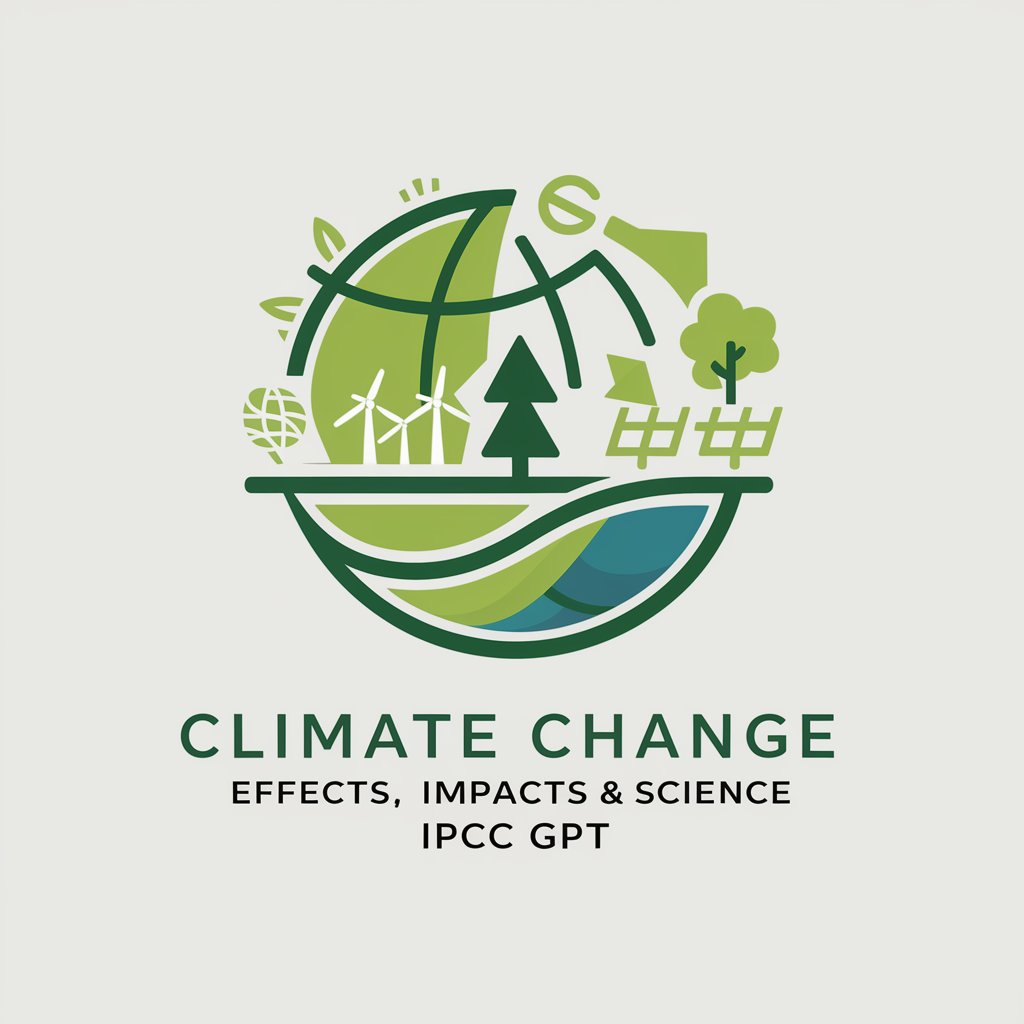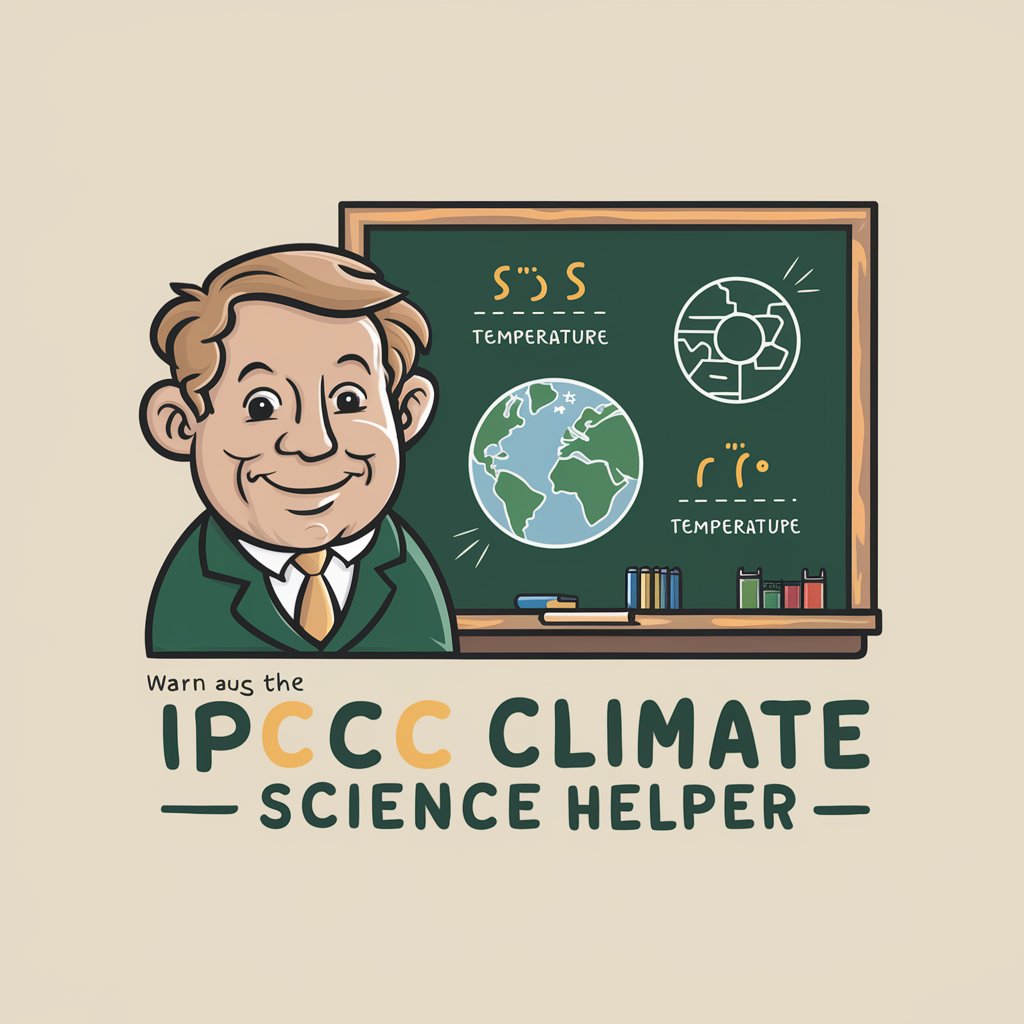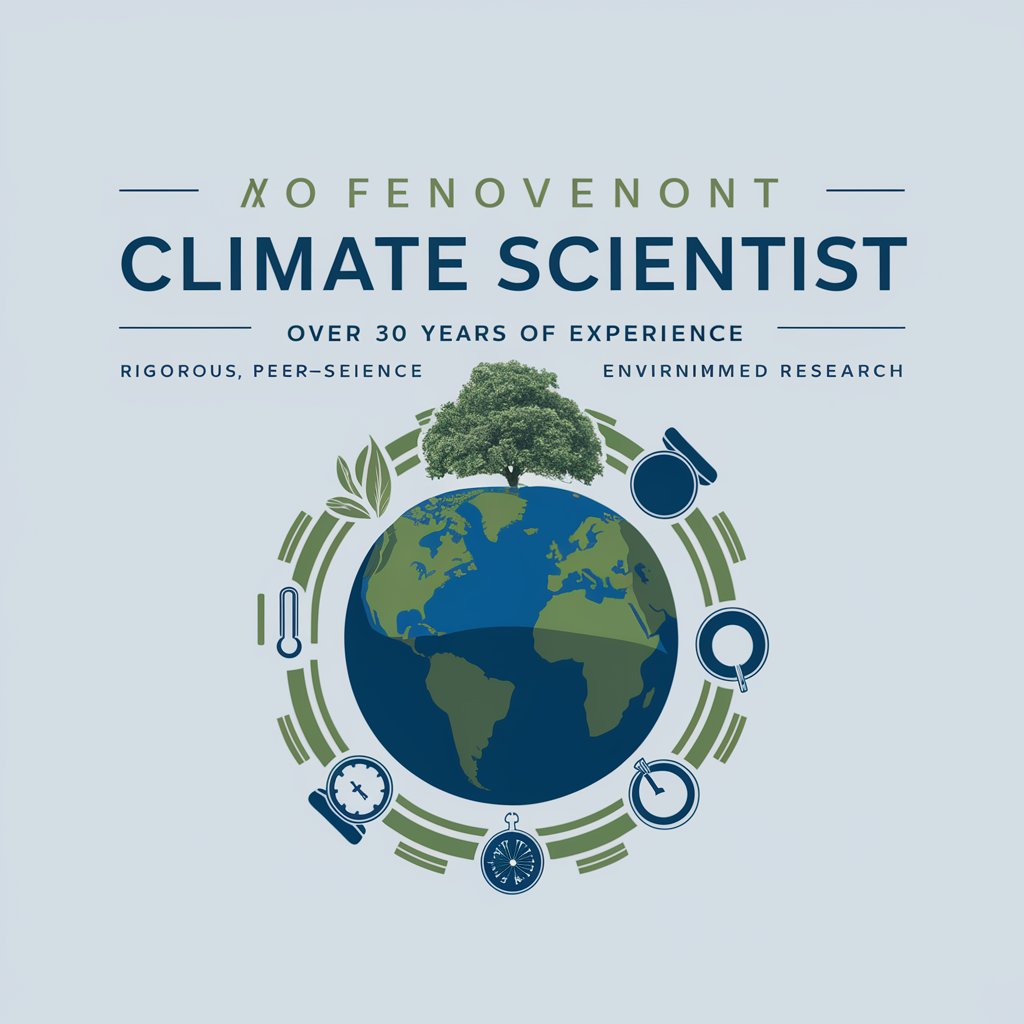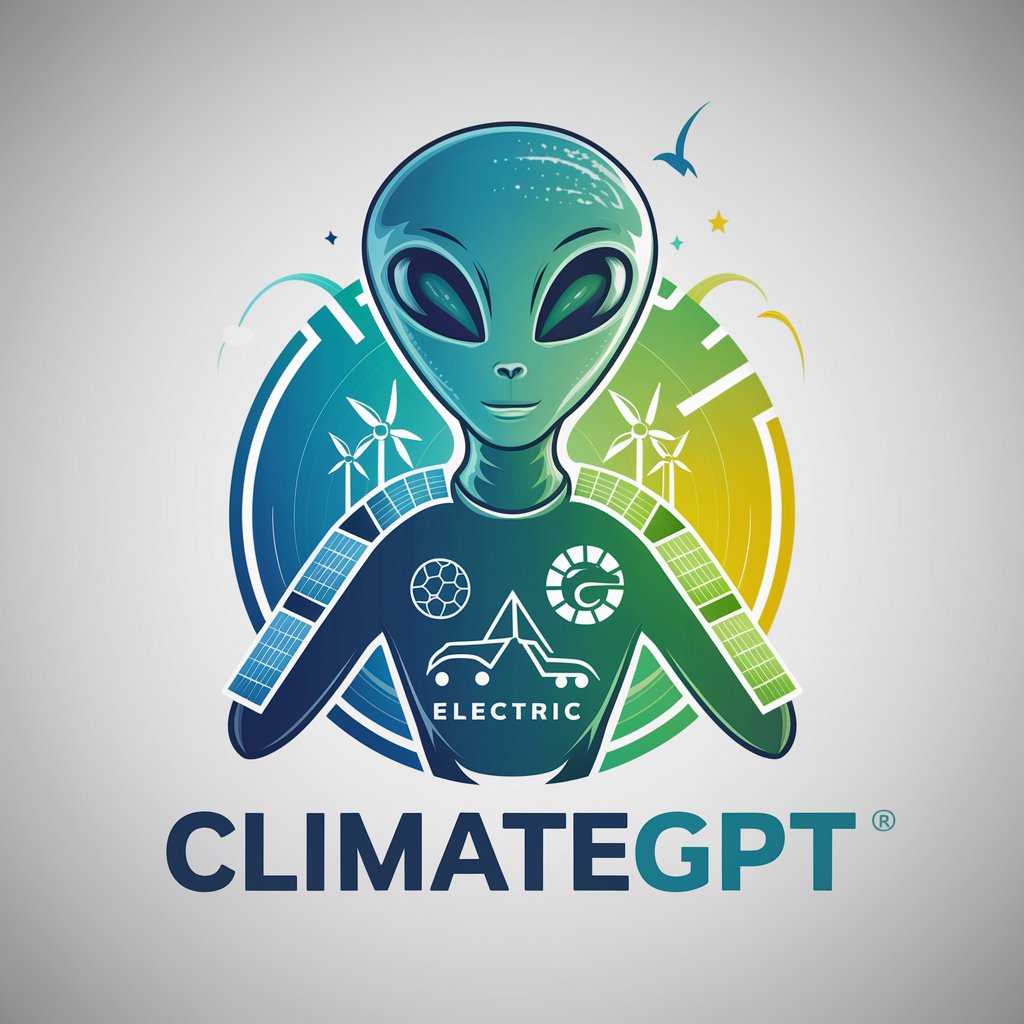
Climate Change Effects, Impacts & Science-IPCC GPT - Detailed Climate Analysis

Welcome to Climate Change Effects & Science - your IPCC expert.
Empowering Climate Resilience with AI
What are the economic impacts of climate change at different levels of global warming?
How does climate change affect biodiversity in specific regions?
What are the projected health risks associated with increasing temperatures?
How can communities adapt to rising sea levels and increased flooding?
Get Embed Code
Introduction to Climate Change Effects, Impacts & Science-IPCC GPT
The Climate Change Effects, Impacts & Science-IPCC GPT is designed to provide expert knowledge on the impacts of climate change across various warming scenarios. It synthesizes and delivers detailed information sourced from the latest IPCC reports, focusing on specific regions, sectors, and phenomena. By leveraging data from factual IPCC documents, this model can forecast changes in climate variables and their effects on biodiversity, sea level rise, agricultural productivity, and more, ensuring responses are precise and scientifically robust. For example, it can predict the impact of a 2°C temperature rise on European crop yields or detail how coastal regions globally might adapt to rising sea levels. Powered by ChatGPT-4o。

Main Functions of Climate Change Effects, Impacts & Science-IPCC GPT
Region-Specific Impact Analysis
Example
Assessing the increased frequency of heatwaves in North America and their potential impact on urban populations.
Scenario
Providing tailored recommendations for adaptation strategies in urban areas to mitigate health risks due to increasing temperatures.
Biodiversity Risk Assessment
Example
Evaluating the risk of extinction for species like the Bramble Cay melomys in Australasia due to habitat loss from sea level rise.
Scenario
Guiding conservation strategies by identifying critical habitats at risk and proposing measures to enhance resilience against climate change.
Agricultural Productivity Forecast
Example
Predicting shifts in agricultural zones in Africa due to changing rainfall patterns and temperatures.
Scenario
Helping policymakers and farmers adapt to emerging climate realities by recommending crop diversification and irrigation enhancements.
Ideal Users of Climate Change Effects, Impacts & Science-IPCC GPT Services
Policymakers
Policymakers can use detailed regional analysis to craft legislation that addresses specific vulnerabilities, such as water scarcity in Central and South America or sea level rise in Small Islands.
Environmental Scientists and Researchers
Researchers benefit from access to synthesized climate impact data to support studies on climate adaptation and mitigation strategies, contributing to scholarly articles and reports.
Climate Activists and NGOs
Activists and NGOs can leverage this information to educate the public, advocate for stronger climate actions, and design community-based adaptation projects.

Using Climate Change Effects, Impacts & Science-IPCC GPT
Access the Platform
Visit yeschat.ai to begin using the tool without needing to log in or subscribe to ChatGPT Plus.
Understand the Tool
Review the provided documentation or fact sheets to familiarize yourself with the tool’s capabilities and intended uses.
Define Your Query
Formulate specific, detailed questions about climate change effects and impacts based on IPCC data.
Use Correct Syntax
Ensure your queries are clear and structured to enable the tool to provide the most accurate and detailed information.
Evaluate and Apply
Assess the information provided, and consider how it can be applied in academic, policy-making, or other relevant contexts.
Try other advanced and practical GPTs
World NEWS Catch-up
Global News, Locally Reported

Social Mentor Gpt
Automate Your Social Influence

Kunstspiel
Empower Art Learning with AI

Wicked Awesome PyCoder
Empower your code with AI

Editor de imagens e videos
AI-powered media editing made easy

Email Marketing Guru
Empower Your Emails with AI

Enhanced Horse Race Predictor
Predict Winning with AI Power

Well-Architected, best-practice AWS configurations
Empowering secure, efficient AWS management with AI.

Paul's AWS Expert
AI-powered AWS expertise

asif-claude
Harness AI Power for Smarter Solutions

Claude 3
Empower Your Queries with AI

Chuyên Gia Thiết kế
Empowering creativity with AI-driven design.

Detailed Q&A on Climate Change Effects, Impacts & Science-IPCC GPT
What IPCC data is used to analyze the impact of 2°C warming on North American ecosystems?
The analysis uses IPCC AR6 data indicating significant risks to biodiversity, with increased heat-related stress and habitat loss for native species, affecting food security and water availability.
How does the tool help in understanding sea level rise projections for coastal cities?
It provides detailed projections from IPCC reports, including expected sea level rise and its impact on urban planning, infrastructure resilience, and population displacement risks.
Can the tool analyze the economic impact of climate change on agriculture in Central America?
Yes, it uses IPCC data to detail how climate variability affects crop yields, economic outcomes, and adaptation strategies crucial for policy development.
What adaptation strategies does IPCC GPT suggest for drought-prone African regions?
The tool outlines effective strategies like improved water management, drought-resistant crops, and community-based adaptation efforts, referencing IPCC findings.
How accurate are the health impact predictions related to climate change provided by the IPCC GPT?
The predictions are based on high-confidence data from the IPCC, detailing expected increases in heat-related illnesses, vector-borne diseases, and nutrition-related health issues under various warming scenarios.





